Story
Help a Japanese grass-roots feminist organisation (Turn Over Table Ladies) publish and distribute “Sexual Consent Handbooks” to university students in Japan!
While the issue of sexual violence has come to receive increasing media attention with the recent #metoo movement, sadly the movement has not taken off in Japan. There are various institutional and cultural barriers that prevent sexual violence from receiving attention, and public and open discussions. We at Turnover Table Ladies (ちゃぶ台返し女子アクション), a grass-roots feminist organisation based in Tokyo, believe that one of the ways to tackle the problem is to raise awareness about the idea of consent amongst the youth in Japan.
Last year, we successfully campaigned to push for the reform of the archaic sex crime laws in Japan. Now we want to publish a “Sexual Consent Handbook” packed with necessary information on how to avoid becoming a perpetrator or a victim of sexual assault, and to distribute the handbook to university students in Japan starting their academic year in 2018.
Why do we need “Sexual Consent Handbooks” in Japan?
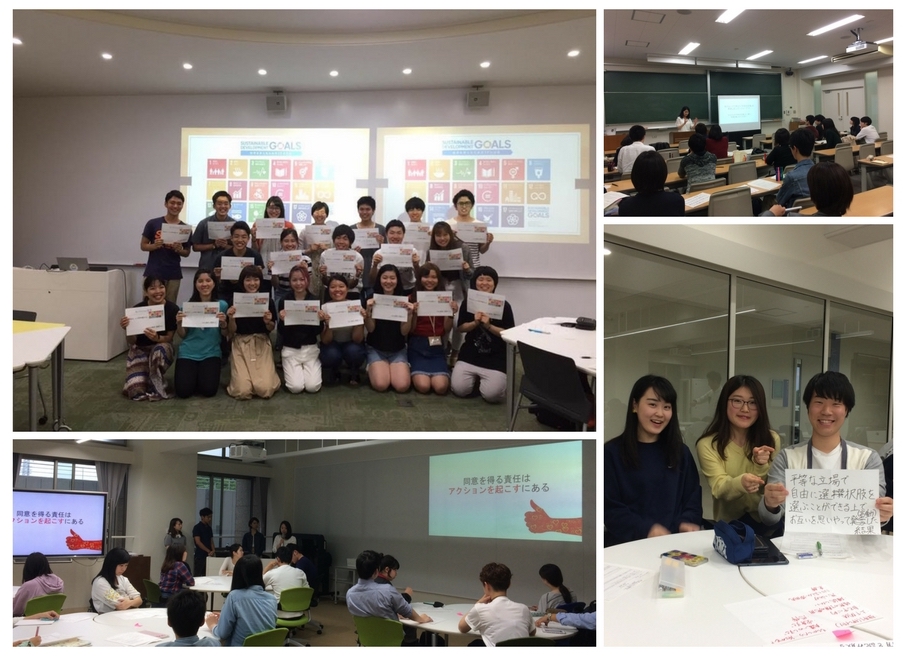
In 2015, 1,167 cases of rape and 6,755 cases of indecent assault were reported to the police in Japan. These may not seem like huge numbers compared to other countries, but figures by the Japanese government indicates that over 95% of rape goes unreported to the police . Moreover, in recent years, there have been several incidents of sexual violence in well-known Japanese universities such as the University of Tokyo and Chiba University.
In May 2016, a group of students belonging to a certain society at the University of Tokyo sexually assaulted a woman at one of the students’ homes. While the victim was intoxicated, the perpetrators poured hot ramen and used a hairdryer on her genital area. At court, one of the perpetrators stated that they could “only see women as sexual objects because they are dumber”. In another case, a group of students from Chiba University sexually assaulted a woman at a bar. After being pushed to engage in binge drinking games, the victim tried to stand up and go to the toilet; the perpetrators then noticed that she was too intoxicated to walk on her own, and carried her to the toilet, and sexually assaulted her. One of the perpetrators stated in court: “It was consensual”. Another chimed in: “She was drunk, but she was able to resist if she wanted to”. These comments are emblematic of the attitude towards sexual violence in Japan: that an intoxicated person can still consent to sexual relations, and that the onus is on “resisting” sexual advances. The case at the University of Tokyo is particularly disturbing as it highlights how elitism - the university being one of the top ones in Japan - and objectification and dehumanisation of women intersect.
Survivors of sexual assault have also said that there is little institutional support for them. They are often subjected to secondary victimisation even by the police, due to victim-blaming and/or lack of training. Moreover, while Japan’s sex crime laws were successfully reformed in June this year, the law still has a clause that states “violence or intimidation” must be used for an act to be recognised as rape. There is currently no mention of consent in the law.
Added to these issues is that Japan’s sexual education is woefully inadequate. The focus is mostly on the biological and physiological aspects, with little information about communication, respect, or indeed contraception. Some teachers even argue that they were told not to use the word “sex” in sexual education classes at school. What happens in many cases is that young people resort to porn to learn about sex, which distorts their views of how they should engage in sex.
For over a year, we have been holding workshops on sexual consent and sex positivity for university students in Japan. For many young people in Japan, sex and sexuality are not a topic they openly discuss even with their partner(s). We believe that sex should be a positive experience for everyone who engages in it, which is why we want to make sex less of a taboo, and to start open conversations about how to make sex into a happier and less traumatic experience.
Our goal is to publish 10,000 copies of the "Sexual Consent Handbook”, aimed at educating young people in Japan to respect one's and others' consent, and to foster sexual relationships that do not harm anyone participating in the relationship. We are striving to publish these handbooks by April 2018, which is when the next academic year begins for many universities in Japan.
The society we envision is one where people are not hurt from sexual violence or unwanted sexual advances, and one in which we know how to have happy, healthy, and consensual sexual encounters.
Our campaign so far
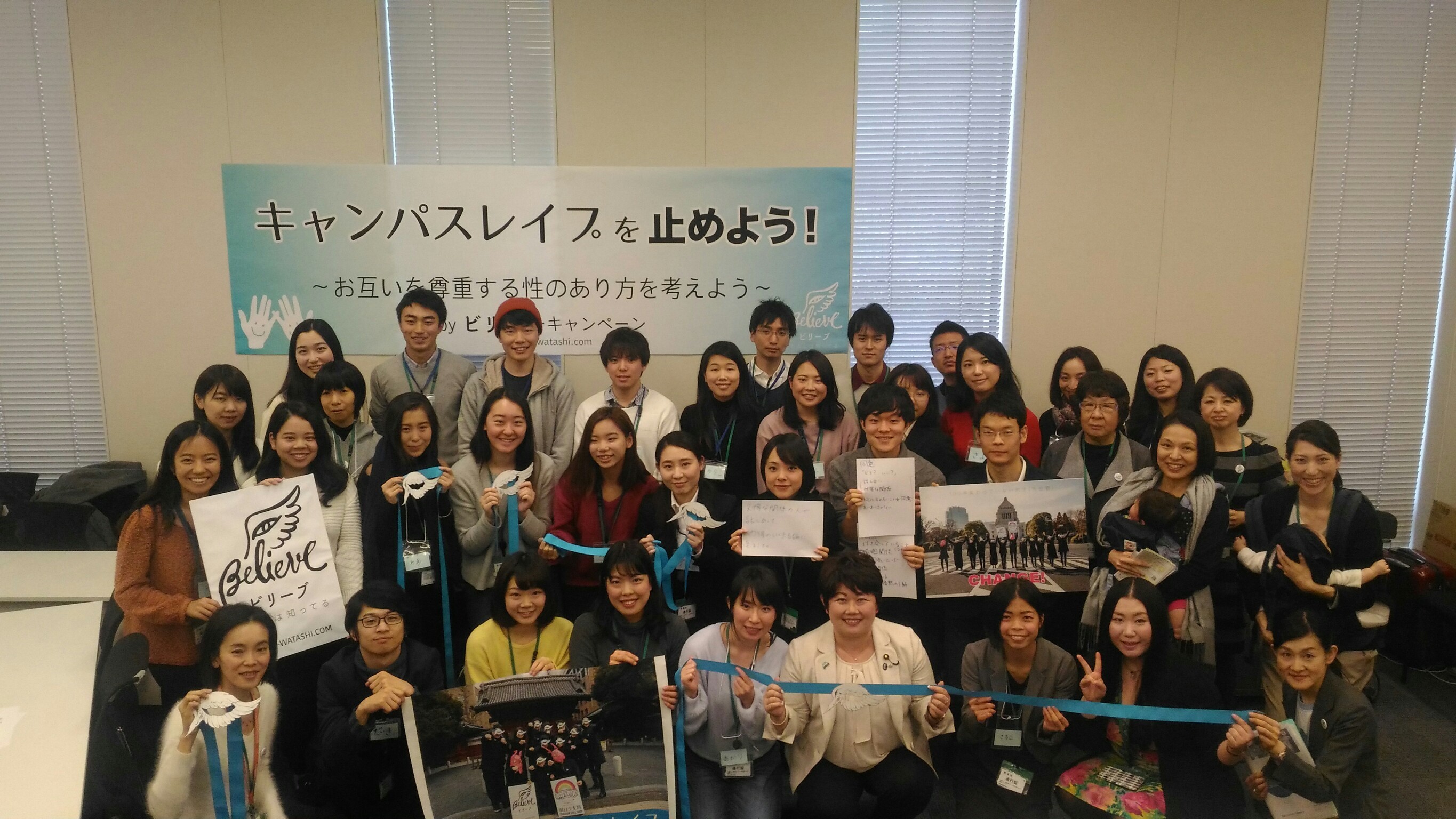
We began our campaign in April 2017, and so far we have conducted 14 workshops on sexual consent for more than 300 university students in institutions such as the University of Tokyo, Sokā University, International Christian University, Komazawa Women's University. There are student groups at these institutions that are currently working on expanding their reach and impact.
So far, various mainstream media such as the NHK, Mainichi Newspaper, and Asahi Newspaper have broadcasted our campaign.
Our workshops are based on sexual consent programmes created by universities in the U.K. and the U.S. Our workshops include short role-play by the facilitators and participants to act out various scenarios followed by structured discussion on how we could be more respectful towards bodily autonomy and sexual consent. We ensure that participants not only learn through listening to our lectures and role-play, but also through opportunities to share their thoughts or through acting out what they have learned. (We have also been mindful to establish rules on making the workshop safe for those who may be triggered by lectures, role-play, and discussions on rape and sexual assault.)
*You can watch one of our workshops here (sorry, Japanese only).
Our participants have told us...
"I had never seriously contemplated the issue of sexual violence, so this workshop was an opportunity for me to learn about the basic but very important differences between sex and sexual violence."
"I think it's too late to start thinking about these issues once we are in university. I wish you could host this workshop for middle school and high school kids."
"The one who takes action is reponsible to check for consent. This was a new and refreshing way of thinking for me."
Others have said:
"I now know that there is more to consent than a simple yes." "I understand that sexual assault is more common and a much more widespread problem than I used to think it is." "I've learned the importance of communicating my feelings and decisions."
Such comments highlight the fact that learning about sexual consent leads to being able to build relationships based on mutual respect and valuing one's own body and volitions more.
Moreover, many students and faculty who have either participated in our workshops or have helped us in some ways, have expressed their thoughts on why they think this campaign is so important and necessary for our society right now. All of their voices makes us even more determined to provide such educational opportunities for more students in Japan.
However, the number of students who can participate in our workshops is limited. They may be busy with classes or their part-time jobs, or think that sexual consent is irrelevant to their lives. There may also be students who are too shy or embarrassed to attend a workshop about sex.
By creating a Sexual Consent Booklet, and distributing it through student networks, we hope to reach out to such kind of students. We believe that such a publication is vital for more students at more institutions to learn about sexual consent.
What we want to achieve with the Sexual Consent Booklet project
We want to eradicate sexual assault by spreading awareness about sexual consent and its significance in Japan. We want to shift towards a society in which everyone can feel positively about their bodies and sexuality.
To realise those goals, we have began a campaign to institutionalise the sexual consent workshops which we have been conducting at various universities in Japan. We want to make sure that more university students learn about sexual consent, and in order to do so, we will work with institutions and various communities to take actions against sexual violence in our society.
As a first step of that campaign, we are publishing a Sexual Consent Handbook that explains sexual consent in ways that most effectively convey what it is and its importance. We want to hand these booklets to as many first year university students as possible in the beginning of the 2018 academic year in April.* (*Most Japanese colleges and universities begin their academic year in April.)
Right now, we are planning to distribute the booklet at the following institutions: University of Tokyo, Sokā University, Chuo University, International Christian University, and Keio University Shonan Fujisawa Campus.
As part of our campaign, we are planning to distribute 10,000 booklets through our workshops, events, and existing student networks and communities.
And as more people learn about our project, and we manage to garner even more support, we plan on distributing at even more universities in Japan.
Making an impact beyond university campuses…
In the past year, we have collaborated with other activist organisations in Japan to help reform the sex crime laws that had virtually not been amended for 110 years. Our campaign was called the Believe Campaign, and you can visit our website here .
In this campaign, we created various media contents including comics and animations to illustrate how easily sexual violence is hidden away whether by the survivors themselves or by the perpetrators, or even by the criminal justice system. We have also conducted workshops and informational sessions about the topic for university students as well as community members. In the end, the number of people who either participated in or helped out at our events rose to nearly 800, and around 54,000 people signed our online petition for the reform of the sex crime laws. By bringing these people's voices to the national members of parliament, we successfully pushed for the reform of the sex crime laws in June 2017. Thanks to this reform, prosecution of sex crimes no longer require the victim to come forward for the prosecution to begin (i.e. third party witness accounts is sufficient to bring the case to court, whereas before, the victim survivors' own report and decision to prosecute was necessary for the prosecution to begin). Moreover, the genders of the victim and perpetrator were also amended. Before the amendment, only men could be perpetrators and only women could be victims. Now, both women and men could be considered as victims and perpetrators. Finally, a clause was added to revisit the penal code in three years time for other possible amendments to the penal code regarding sexual assault.
However, there is still some challenges we must overcome. Even with this reform, victims are required to provide evidence that they physically resisted the perpetrator's sexual advances with all their might in order for the perpetrator to be considered guilty on the charge of sexual assault. In order to change the requirement of "violence or intimidation" to the requirement of gaining consent, we need to create a strong public opinion that in any sexual interaction, consent is necessary.
By spreading the message on the importance of sexual consent to university students and eventually to the society as a whole, we hope to change people's attitudes towards sexual violence, and to create public support for a sex crime law that is more realistic than the current one.
Why I started this project - words from our Co-Founder, Sachiko
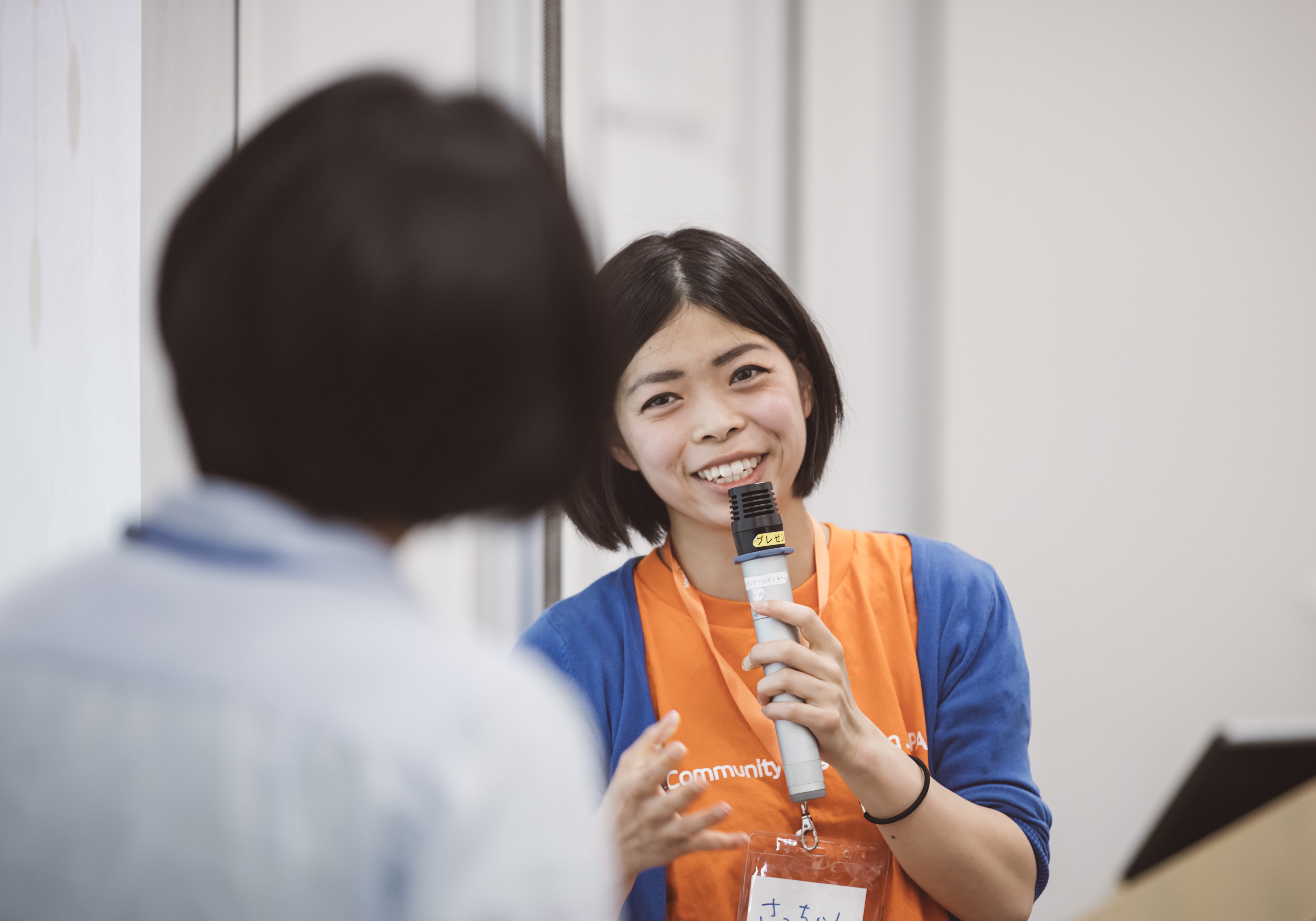
Personally, my perceptions of sex and sexuality changed when I entered university.
Until then, I was not able to see my sexuality or body as something I had complete control and ownership over. When I looked at Japanese magazines, there would be articles after articles on "how to be desirable" or "how to be lovable", and on television and movies, women were depicted as obedient, passive, and putting others' wishes before theirs. Although such onslaught of information on how I ought to be bothered me, I still judged myself through the lens of others.
When I entered university and first learned about sexual consent through foreign media, I felt as though I finally found the ideas, words, and attitude to combat the uneasiness I felt my entire life. I felt extremely empowered to know that I have the right to decide what happens to my body and what I do with my sexuality, and that my volition must be respected by others. Thanks to that, I feel much more confident in my own skin, and have been able to forge healthy and balanced relationships with others.
Although my personal story has had quite a positive trajectory, it has not been the case for some of the university students in Japan. In recent years, there has been several incidents of sexual violence in well known Japanese universities such as the University of Tokyo or Chiba University. What's more, in a 2014 study conducted by the Gender Equality Bureau Cabinet Office, of those women who were sexually assaulted, only 4.3% of the women reported to the police. It is probably the case that there are many more cases of sexual assault than those which are covered by the news. Moreover, there has been reports of sexual assault incidents at internships and job hunting opportunities.
The key solution to eradicating sexual assault is to spread knowledge and awareness about what sexual consent is, and why it is so important. Sexual consent is an expressed active affirmation to another person's sexual advances towards you. It is based on the principle that during sexual interactions, we must always check for consent, and respect each other's will.
Such a principle is backed by many sub principles that are vital to forging a healthy and loving relationship. Here are a few:
- Understanding of one's and another's sexual boundary
- Understand that everyone has the right to autonomously decide their sexual boundary
- Know what is consent and what isn't consent
- Know how to communicate to reach a consensus which everyone is satisfied with
Unfortunately, most grade schools in Japan do not teach sexual consent to their students. Instead, young people learn from porn videos that often glorify violent non-consensual sex. Moreover, conversations regarding sex is considered taboo, and therefore results in the persistence of these unrealistic, non-consensual, and often violent sex acts being considered ideal.
In such an environment, we think it is inevitable that many people blame themselves for feeling bad about a sexual encounter they had or feel deep regret from hurting somebody.
Meanwhile in various universities in the U.S. and the U.K., there has been an increasing number of educational programmes teaching about sexual consent. This surge in programmes on sexual consent happened after a wide coverage of rape cases on campus, which led to sexual violence becoming recognised as a serious societal issue.
In order to change such a status quo, many students and organisations began to take action.
Since then, many universities have introduced sexual consent workshops at their new student orientations, have trained their residential advisors and other student leaders on sexual consent as well as active bystander intervention, and have created various educational publications on sexual consent and other related issues such as dating violence, stalking, and harassment. Although there is still a lot of work to do, there is an open and ongoing discussion on how to deal with campus sexual violence, and on how to make university campuses a safe place for everyone.
Upon learning about the progress that has been made in those countries, I felt hopeful that with persistent effort and collaborations with those who felt similarly about the issue, we would be able to gradually change the people around us and the society as a whole.
Team members
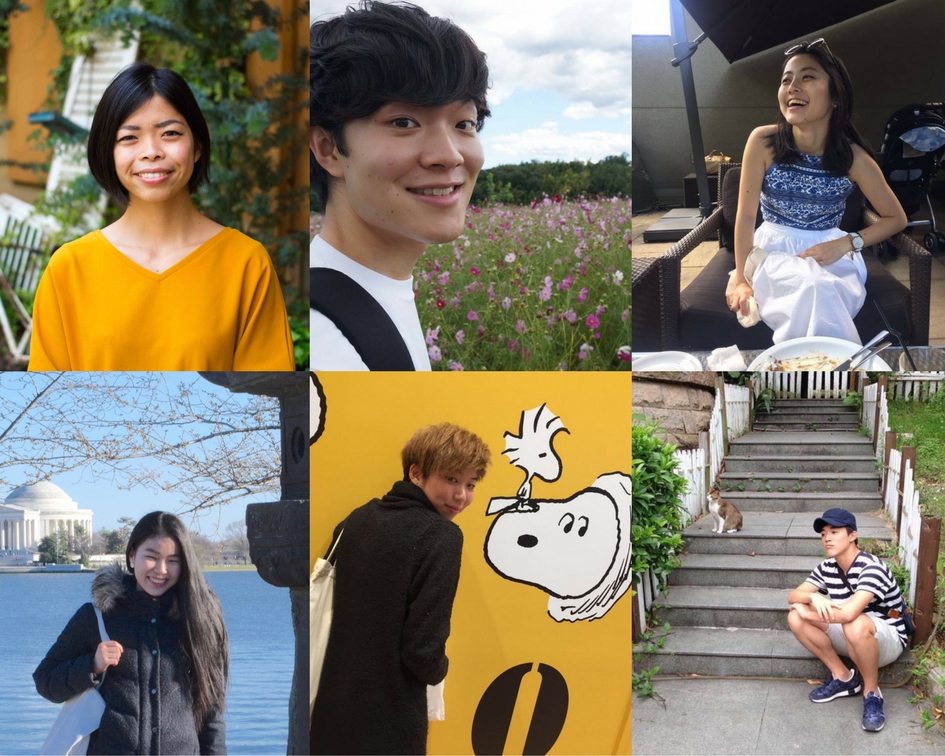
Below are the members of the team working on creating and distributing the Sexual Consent Handbook:
Sachiko Osawa (Co-Founder of Turnover Table Ladies)
Sachiko is the co-founder and director of the sexual consent campaign. She is also involved in the research and development of workshops regarding sexual consent. She hopes to realise a society in which everyone feels that their body, and their life are their own by changing the culture surrounding sex, sexuality, and sexual violence.
Koichi Sasaki (Postgraduate student at the Graduate School of Humanities and Social Sciences, University of Tokyo)
I began researching about sexual violence and helping to spread awareness about the issue after learning that one of my close friends suffered from sexual assault. Since that incident, the issue I had felt was distant and irrelevant to my life started to feel much more relevant. Throughout my involvement in this campaign, I have learned there are many misconceptions surrounding sexual violence. I have also come to fully realise the importance of learning how not to hurt others and that hurting somebody isn't just about not committing sexual assaults yourself but also about being mindful and caring towards survivors to prevent secondary assault. My goal with this campaign is to create a safe university campus from the perspective of sex and sexuality.
Takahashi Asaki (Undergraduate student at International Christian University)
I have always been interested in gender equality issues, and have been taking classes about gender and sexuality at college. I used to live in the U.S., and when I came to Japan, I was surprised by how carelessly and jokingly people used the term "sekuhara" (short for sexual harrasment). I am working to make the sexual consent workshops part of the first year student orientations. My goal is to make Japan into a more gender equal society.
Fuchigami Takashi (Undergraduate student at Sokā University)
I have been engaged in negotiation and awareness-raising in preparation for the introduction of consent workshops at my university. By tackling the issue of sexual violence, I hope to make Japan a country where everyone is respected as a human being regardless of their gender. Whilst it is difficult to gain understanding on this issue, I hope to be a bridge in advancing this grass-roots movement.
Yuki Adachi (Undergraduate student at Policy Studies Department, Chuo University)
I am currently mainly studying about gender and sexuality at university. After starting university and learning more about gender bias in society, I encountered Believe Campaign. As I sympathised with the cause, I decided to join the movement and start raising awareness at my university. I feel that everyone who engages in relationships - not just romantic ones - should know about the idea of sexual consent in order to protect oneself and to respect others. I hope the workshops will provide a chance for more people to know about the concept, and to reevaluate their relationships with others.
Chie Yamamoto (Undergraduate student at Faculty of Environment and Information Studies, Keio University)
My interest in gender and sexual harassment was sparked during my time as an exchange student in Washington DC, the U.S. Even though it is a problem that is close and relevant to many people, it is not openly discussed in Japan due to cultural barriers. By being an active member of this movement, I hope to contribute to making an environment where people from different backgrounds can engage with each other and lead their lives with confidence.
How we will use your donations
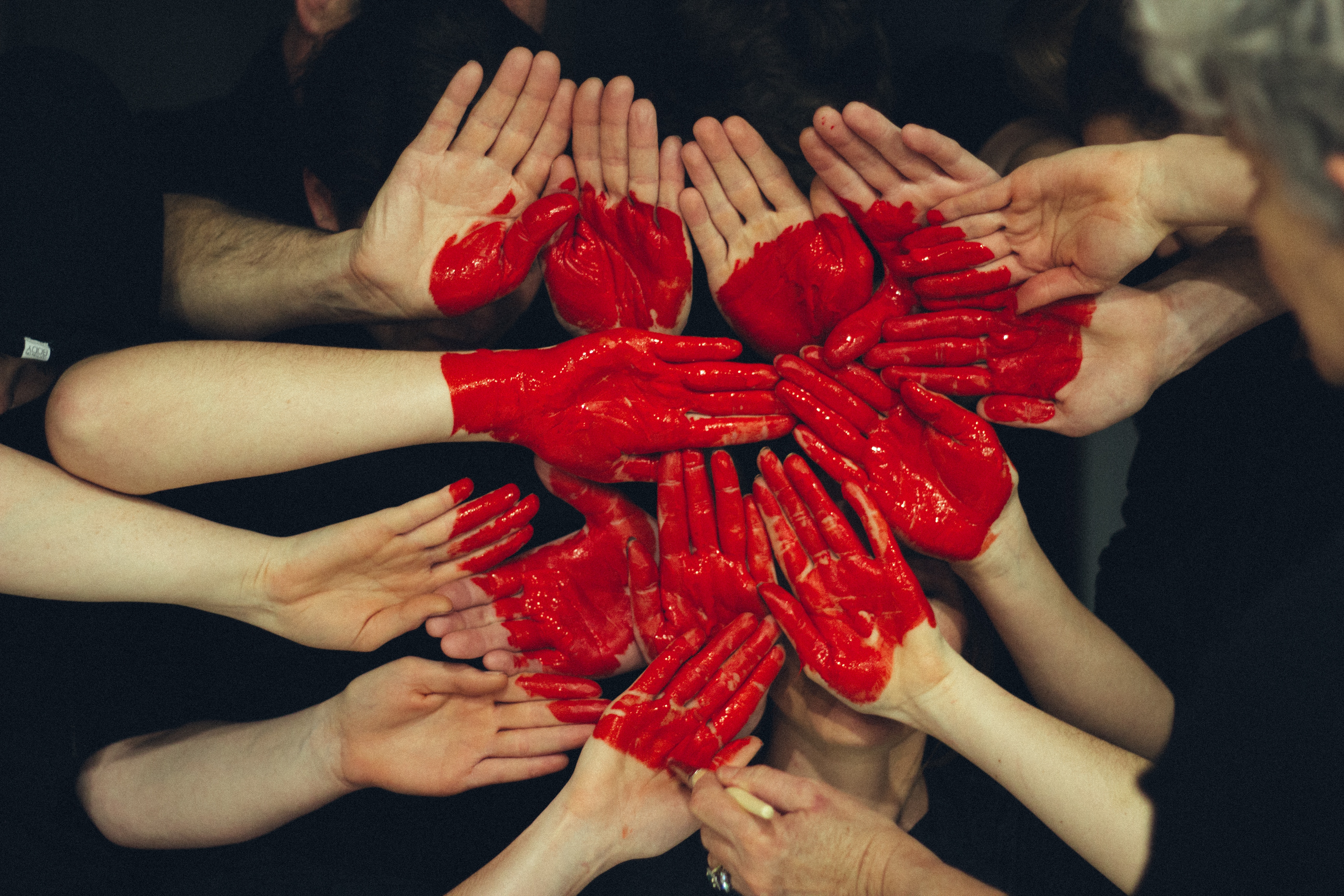
We will use your donations to fund the design and printing costs of our handbook. Part of the donation would be spent on hosting events to distribute our handbooks.
Our handbook will contain facts about sexual consent and sexual violence and various ways the reader could help to reduce sexual assault in general. The following are some of the topics covered in our handbook:
- What is sexual consent? Why is it important?
- What is sexual violence? Why do we all need to think about this issue?
- What are some myth regarding sexual violene? Why are they myths and not facts?
- Discussions on sexual boundaries and sexual autonomy
- How to have conversations on the topic of sex and sexuality
- How bystander intervention could help reduce sexual assault
Through this project, we hope to take the first step towards realising a world where everyone’s rights to their bodies and sexual autonomy are fully respected, and where we can build healthy and happy relationships.
Thank you so much for reading so far, and I hope that you will support our cause in any way that you can!
From the "Sexual Consent Handbook" Team at Turn Over Table Ladies
*Many thanks to May Kurata for the translation!